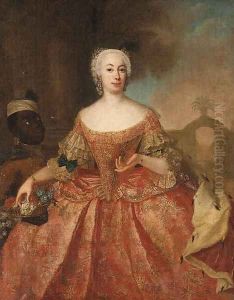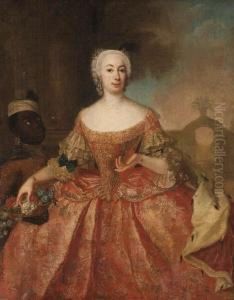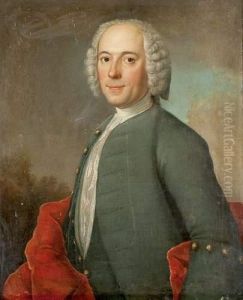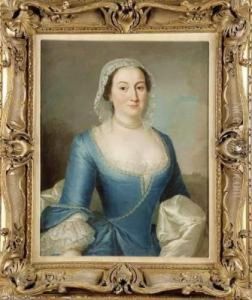Rosina Christiana Ludovica Matthieu, Ne Lisiewska Paintings
Rosina Christiana Ludovica Matthieu, also known as Rosalba Carriera's sister and born as Rosina Christiana Ludovica Lisiewska, was a notable artist of the 18th century, albeit less renowned than her sister. Born in 1713 into the artistic Lisiewski family of Prussian Poland, Rosina was one of the daughters of the painter Georg Lisiewski and the sister of acclaimed portraitist Rosalba Carriera and painter Anna Dorothea Therbusch.
Rosina's early life was steeped in the arts, learning painting alongside her siblings under the tutelage of her father. Her work primarily involved portrait miniatures, a genre that was popular during the period. Rosina, like her more famous sister Rosalba, would have worked in pastels and watercolors, mediums well-suited to the delicate and detailed work required for miniatures.
Despite her considerable skill, Rosina's career was overshadowed by that of her sister, who had established herself as one of the leading portrait artists in Europe. Rosalba Carriera was particularly known for her work in Venice, where she became a member of the Venetian Academy. Rosina's work, while skillful, did not achieve the same level of acclaim or historical recognition.
Nevertheless, Rosina Christiana Ludovica Matthieu contributed to the artistic legacy of her family and the period. Her works would have been part of the flourishing artistic scene of the time, which was characterized by the Rococo style's love of elegance, grace, and lightness.
Rosina passed away in 1783, having lived through a dynamic period in European art history. Unfortunately, much of her work has not survived or has been overshadowed by the achievements of her sister, leaving Rosina as a lesser-known figure in the history of art. However, her role as a female artist during the 18th century and as part of a family of artists remains a point of interest for art historians studying the era and the contributions of women to the arts.



